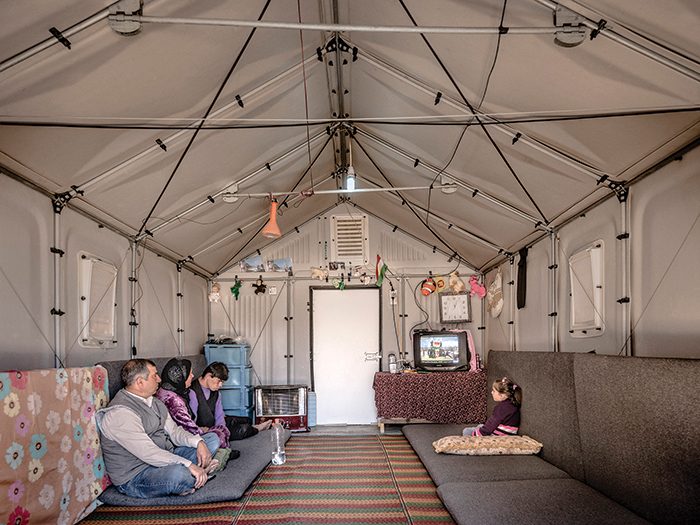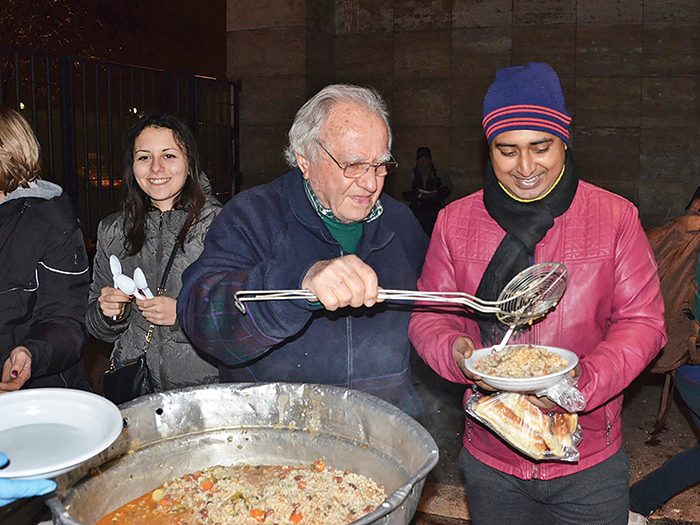Good News
Some of the positive stories coming our way

Shelter for refugees
Design Tents haven’t evolved much over the years. They usually rely on canvas, ropes and poles and don’t last too long when they’re used on a permanent basis. But they’re still the accommodation of choice when it comes to refugee camps. And that’s what led Swedish furniture giant IKEA to apply its flatpack approach to the problem of creating temporary shelters.
IKEA’s 17.5 sq m Better Shelter (pictured) consists of a steel frame clad with insulated polypropylene panels, with a solar panel on the roof. It can be assembled by four people in four hours and the only tool required is a hammer.
“If you compare life in the tents and life in these shelters, it’s a thousand times better,” says Saffa Hameed, 34, who has experienced both at the Al Jamea’a refugee camp in Baghdad. “It’s more protected,” agrees Saffa’s wife, Hind. “We have a door we can close and lock. I feel it’s safer and cleaner.”
The shelter was developed by the not-for-profit IKEA Foundation together with the United Nations Refugee Agency. It costs $1,250, which is twice the cost of a typical emergency tent, but lasts six times longer. Some 16,000 have already been deployed around the world, with more about to be sent to Niger for refugees fleeing Boko Haram.
France acts on sugary drinks
Health Having already put a tax on soft drinks and banned vending machines from schools, France has now taken the latest step in its crusade against sugary drinks by banning unlimited refills in restaurants and other spaces catering to the public. The new law aims to limit the known risks of obesity and diabetes posed by sugary drinks.
According to a recent Europe-wide survey, 15.3 per cent of French adults are obese, which is just below the average. Malta, at 26 per cent, has most cases, while Romania and Italy have the least. Overall, one adult in six in the EU is considered obese.
Birds are good for health
Well-being People living in neighborhoods with more birds are less likely to suffer from depression, anxiety and stress, according to researchers at the UK’s University of Exeter. “Our study starts to unpick the role that some key components of nature play for our mental well-being,” says research fellow Dr Daniel Cox. “Birds around the home, and nature in general, show great promise in preventative health care, making cities happier places to live.”

Feeding Rome’s people in need
Heroes “People in need are my brothers. I can’t just turn the other way,” says 86-year-old Dino Impagliazzo (pictured), who prepares hot meals for up to 250 migrants and needy people in Rome four days a week. His charity, RomAmor, uses food that’s close to its expiration date and is donated for free by local shops and wholesalers who would otherwise throw it away.
His first donor was a baker, who was curious about the elderly customer who would buy 20 loaves a day. When he discovered it was Impagliazzo making sandwiches for the homeless, he offered him his unsold bread at the end of the day for nothing. More shops are now getting involved.
Sources: Design: The Guardian: 27.1.2017; Health: BBC News, 27.1.2017. Well-being: Good News Network, 27.2.2017; Heroes: Christian Science Monitor, 10.2.2017



